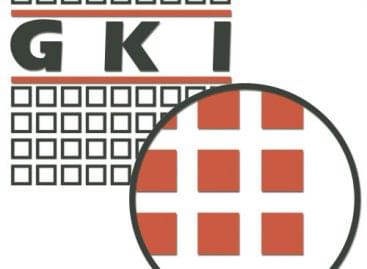The National Trade Association has developed proposals for the elimination of margin-cutting measures
The National Trade Association (OKSZ) has submitted to the government a research study by GKI Economic Research Co. (GKI) analyzing the economic impact of the margin cap, which concludes that a rapid phasing out of the measure is justified. The study also includes recommendations for a scenario in which the government opts for a gradual withdrawal instead of the originally planned and still legally valid end date at the end of May, as advocated by the largest players in the food retail sector.
 OKSZ commissioned GKI to prepare an impact assessment based on qualitative and quantitative methodology, providing a comprehensive evaluation of the market and macroeconomic effects of the measure. The study has been made available to the government and is also accessible on the OKSZ website. (http://oksz.hu/arresstop)
OKSZ commissioned GKI to prepare an impact assessment based on qualitative and quantitative methodology, providing a comprehensive evaluation of the market and macroeconomic effects of the measure. The study has been made available to the government and is also accessible on the OKSZ website. (http://oksz.hu/arresstop)
Before presenting the recommendations, it is important to clarify that, contrary to the claims of the Ministry of National Economy, OKSZ has never stated that the margin cap does not reduce the final consumer prices of the directly affected products or that it has no direct impact on inflation. However, the GKI study demonstrates that the measure has side effects that are detrimental even to consumers, hinder GDP growth, and generally run counter to the long-term interests of the national economy. The longer the system remains in place, the more pronounced these side effects become.
Maintaining the margin cap regulation carries the following risks:
- Due to decreasing prices among large chains, 18% of smaller retailers—who represent 48% of the food retail sector—are planning to close one or more stores, further jeopardizing supply security. In Hungary, there are already 400 settlements without a grocery store, and in several hundred more, it is not possible to do a full grocery shop. According to data from the Hungarian Central Statistical Office (KSH), 1,279 mixed retail units with a food profile closed in 2024. According to OKSZ, this cannot be called a success, and the number may increase further in 2025.
- The investment capacity of the retail sector is declining, which negatively impacts consumers through deteriorating or stagnant service quality and leads to a decrease in retail employment. At the national economic level, it also hinders development efforts.
- Distortion of supply chains increases imports, which can reduce the output of the food industry and net exports, ultimately leading to a decline in GDP. These distortions may take years to correct.
- Sales resulting in operational losses dry up development and investment resources, thus failing to resolve supply insecurity in certain areas and degrading the consumer experience.
- The administrative pricing of affected products has disrupted former market-based pricing conditions across the supply chain, causing losses to all affected market participants—especially in an inflationary environment impacting raw materials used in production. In its current form, price regulation is counterproductive to economic growth.
- The pricing regulation undermines supplier-retailer negotiations that were previously based on market logic, stalling functioning market mechanisms.
- Due to the low price elasticity of the affected food products, there is no significant increase in consumption. Sudden, improvised pricing measures and their communication mainly breed mistrust within the business sector, which in turn reinforces inflation expectations.
Overall, the margin cap conceals growing tensions within the supply chains, deteriorates the consumer experience and product quality, and adversely affects the national economy as a whole.
Taking all of this into account, OKSZ continues to advocate for ending the margin cap at the end of May, as originally planned and stipulated by current legislation. At the same time, OKSZ also asked GKI to provide alternative proposals in case the government opts for a cautious phase-out due to the tensions the current pricing system has concealed.
Recommendations:
1. To avoid further negative effects and damage, the food margin cap regulation should be phased out on May 31, 2025.
2. On a voluntary basis, retailers should limit the margin of entry-level (i.e., the cheapest) products within the affected food categories to a maximum of 10% until August 31, 2025. This solution would help the most socially vulnerable groups while ensuring representation across all affected product categories.
3. Gradual phase-out:
- As of June 1, 2025, the first 10 highest-volume product categories should be removed from the margin cap,
- As of July 1, 2025, the second set of 10 highest-volume categories should be removed,
- As of August 1, 2025, the remaining categories should be excluded from the scope of the margin cap.
These proposals were developed by GKI in full compliance with competition law regulations. OKSZ remains committed to supporting Hungarian families through fair market competition, thereby stimulating household consumption—which is currently the most important driver of GDP.
Related news
GKI economic sentiment index begins 2026 with a small decline
🎧 Hallgasd a cikket: Lejátszás Szünet Folytatás Leállítás Nyelv: Auto…
Read more >Related news
Pálinka, my love…
🎧 Hallgasd a cikket: Lejátszás Szünet Folytatás Leállítás Nyelv: Auto…
Read more >Not a turnaround, but consolidation: an agricultural outlook for 2026
🎧 Hallgasd a cikket: Lejátszás Szünet Folytatás Leállítás Nyelv: Auto…
Read more >







